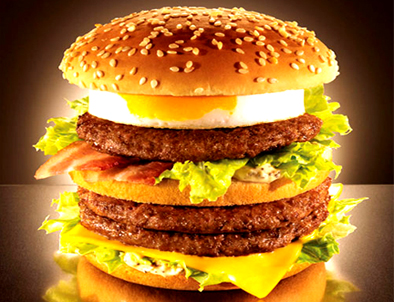
San Francisco's board of supervisors recently voted to ban most of McDonald's Happy Meals as they are now served in the restaurants. The measure will make San Francisco the first major city in the country to forbid restaurants from offering a free toy with meals that contain more than set levels of calories, sugar and fat. The ordinance would also require restaurants to provide fruits and vegetables with all meals for children that come with toys.
Just after the vote, McDonald's spokeswoman Danya Proud said, "We are extremely disappointed with today's decision. It's not what our customers want, nor is it something they asked for."
The ban, already enacted in a similar measure by Santa Clara County, is scheduled to take effect in December. Restaurants may include a toy with a meal if the food and drink combined contain fewer than 600 calories, and if less than 35% of the calories come from fat.
In recent weeks, the ban launched intense debate with supporters arguing that it would help protect children from obesity, and opponents seeing it as the latest example of the government trying to act as parent.
“San Francisco and Santa Clara County’s banning of McDonald’s Happy Meals is a bad use of government regulatory authority,” writes Anthony Gregory, Research Analyst at The Independent Institute in Oakland.
“McDonald’s (MCD) Happy Meals, however vulgar, tacky, and easily associated with public health concerns, are a part of modern American culture. Parents will occasionally buy kids fast food, which sometimes comes with toys, as do Cracker Jacks and some cereal boxes.
I make no apologies for a society in which children clamor for hamburgers, fries, and sweetened water served in easy-crossword-puzzle covered boxes accompanied by toys made in China.
If governments think there is a health epidemic, officials should end corn subsidies, which distort the American diet for the worse, address the horrible school lunch programs, and rethink having kids sit in classrooms seven hours each weekday.
But government bans on Happy Meals are a shot across the bow of American freedom. They are an attack on parents’ rights, childhood, common sense, and free enterprise.”
In response to Gregory’s points, Stacey Folsom of Corporate Accountability International writes that, “San Francisco’s and Santa Clara’s actions are not bans. They are common-sense health interventions that set nutrition guidelines for children’s meals accompanied by toy giveaways.
These government actions address a national public health crisis that costs more than $150 billion in medical care each year. For too long the response to this epidemic has been to pour taxpayer dollars into nutrition education and physical activity programs while failing to address the junk food marketing that drowns out such worthwhile initiatives.”
“Every day I care for children who are suffering from diet-related conditions such as high blood pressure, sleep apnea, and pre-diabetes,” says Dr. Amy Beck, a pediatrician at University of California, San Francisco, who was among the thousands of residents who supported the local efforts to control fast food marketing.
